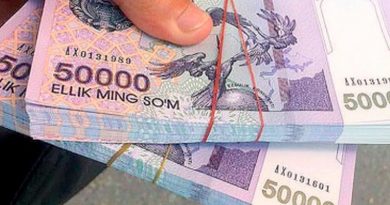Uzbekistan: Employees of hokimiyats were detained while receiving a bribe
Three employees of district hokimiyats are accused of bribery. Hokim’s assistant for border issues of Chust district of Namangan region and his accomplices were detained while receiving a bribe of $1,500 and 5.6 million sums ($1 = 11,320 sums).
They promised to allocate more than five hectares of land to a certain citizen for $15,000. A criminal case was initiated against the suspects under Articles 168 (“Fraud”) and 211 (“Bribery”) of the Criminal Code.
This is the third such case with hokims’ assistants in recent times. On April 6, the hokim’s assistant of Zangiata district of Tashkent region and a former employee of the Cadastre Department were caught while receiving a bribe of $1,000.
On March 10, in Jarkurgan district of Surkhandarya region, while receiving 5.5 million sums from a citizen, an assistant to the district hokim for the development of entrepreneurship, employment and poverty reduction was detained.
In the reports of the Department for Combating Economic Crimes under the Prosecutor General’s Office, when evaluating such criminal acts, the euphemism “abuse of power” is often used and, as a rule, the names of the detainees are not disclosed.
In 2020, a group of employees of hokimiyats was also detained. Then the record of ‘monetary compensation for services’ was set by the deputy head of the Main Department of Capital Construction under the hokimiyat of Tashkent. The security forces caught him in a deal – on June 25, when selling one hectare of land for $1,400,000 to the head of the Investment and Foreign Trade Department of the hokimiyat of Chilanzar district of the capital.
Earlier, ACCA wrote about the signing by the President of the decree “On measures to create an environment of uncompromising attitude towards corruption, a sharp reduction in corruption factors in state and public administration and expansion of public participation in this direction”. The wording in the title of the document doesn’t clearly show the determination of the authorities to fight bribery and theft in the country. As a result, officials of a low level of performance (deputies, assistants, heads of departments, etc.) go to jail.
Created in 2020, the Anti-Corruption Agency reports directly to the President of the country, providing reports to the Parliament. Neither the decree establishing the Agency nor the text of the state program mentions independence in investigating corruption. The program mentioned the creation of numerous interdepartmental commissions along the entire vertical of power with the participation of ‘people’s representatives’ of all levels. The list includes corrupt representatives of the deputy corps, fiscal and law enforcement agencies. For the third year now, the Agency has been unable to set up a platform for informing about corrupt officials; E-antikor website is in a test condition.




